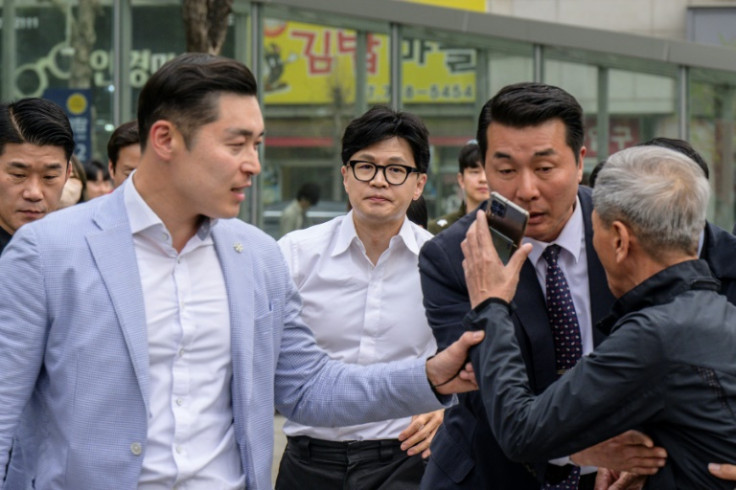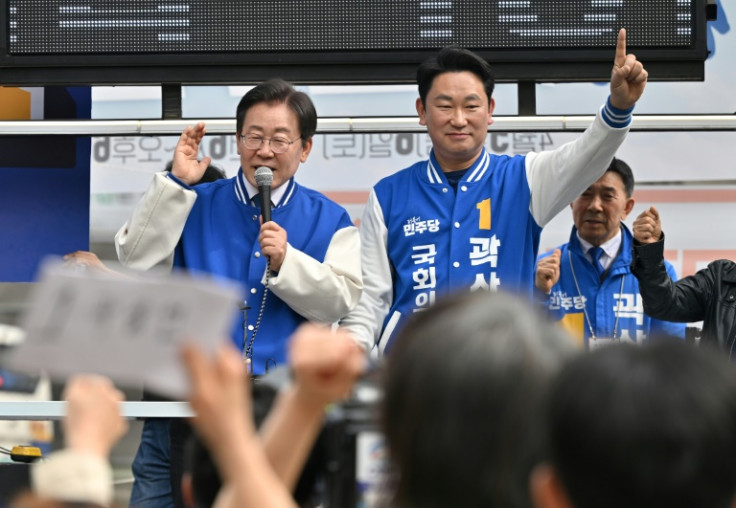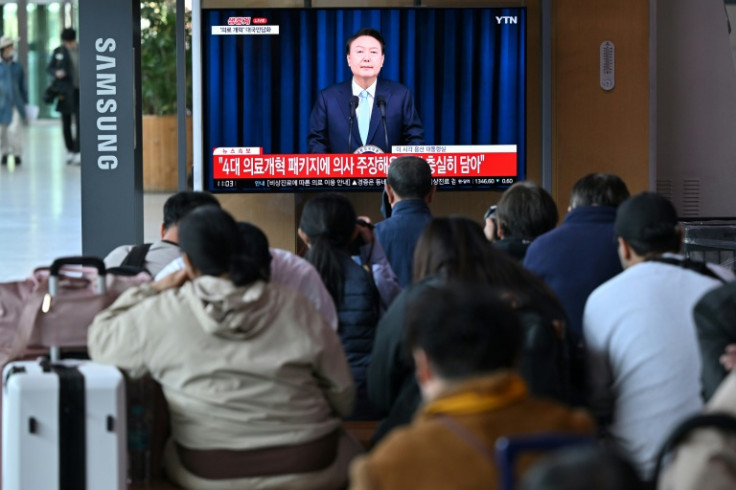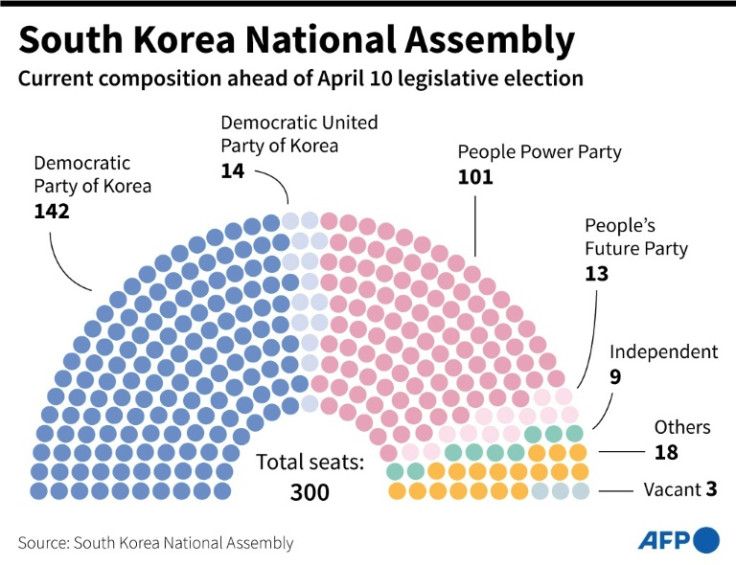Social Media Supercharges South Korea's 'Politics Of Hatred'

Online disinformation and hate speech are poisoning politics the world over, but in South Korea there have also been real-life acts of violence in a deeply polarised electorate before polls on Wednesday.
Opposition leader Lee Jae-myung was stabbed in the neck in January in a dramatic demonstration of the political atmosphere in the run-up to Wednesday's legislative election.
Lee survived but analysts fear the supercharged political atmosphere and the weight of "incitement to hatred" online could lead others to step out from behind their keyboards.
Wednesday's parliamentary poll will decide whether the opposition Democratic Party (DP) can grow its majority and further weaken conservative President Yoon Suk Yeol and his People Power Party (PPP).
The nation of 51 million people has a host of urgent problems, such as crippling doctors' strikes, a weak economy, a shrinking population and testy relations with nuclear-armed North Korea.
But online rhetoric has focused more on the personalities of the main candidates and the outlandish dangers that, if some of the thousands of social media posts are to be believed, the parties supposedly represent.
"If we don't win a majority, Lee Jae-myung will surrender our nation to Red China and destroy the Korea-US alliance," reads one typical message on Facebook.

Doctored images and videos have also proliferated, according to AFP factchecks, such as one showing Lee bowing to a statue of Chinese communist leader Mao Zedong. Relations with China are a touchy subject in South Korea.
Other images were altered to show him being attacked with a chopstick or just lightly wounded. In reality, Lee was stabbed with a hunting knife in the attack in the port city of Busan and needed emergency surgery.
Politics is famously adversarial in South Korea, where two of the past three presidents have ended up in jail on corruption charges.
Yoon defeated Lee by the smallest margin in South Korean political history to become president in 2022 and the divisions have deepened since then.
PPP leader Han Dong-hoon dubbed Lee and Cho Kuk of the Rebuilding Korea Party "criminals" at one rally, a reference to allegations made against by the two men.
Yoon has used epithets for his opponents such as "anti-state forces" and "gang-like cartels".
Lee Jae-kook, media and communications professor at Sungkyunkwan University, said social media has supercharged the political polarisation.
"What previously was absorbed through the consumer's voluntary participation is now subliminally propagated as users unwittingly access the web or browse YouTube videos, making such messages ever more dangerous," Lee Jae-kook told AFP.
The online history of Lee Jae-myung's attacker, a 67-year-old real estate agent who was disguised as a supporter at a campaign event, was revealing.
"The only way for South Korea to renew itself is by arresting and executing Lee Jae-myung, Moon Jae-in and all their fellow Communist traitors," he wrote in one post months before, referring to Yoon's predecessor.

"Only then can President Yoon Suk Yeol be freed up to save this country."
Lee Jae-han, a political scientist at Incheon University, told AFP the incident showed how the current climate meant that a politician "can at once be the target of zealous hatred as well as near-religious adoration".
Weeks after Lee Jae-myung's stabbing, a 15-year-old boy repeatedly hit ruling party lawmaker Bae Hyun-jin on the back of the head with a rock in Seoul's upscale Gangnam district.
Bae's injuries were not serious but Yoon described the attack on her as an act of "terrorism".
Police said on Monday they had arrested a man who allegedly created a fabricated video uploaded to Instagram, Facebook and TikTok of Yoon apologising for corruption and incompetence.
Facebook and other social media platforms have taken some posts down but the sheer volume is overwhelming.

Both major parties have called for an end to what opposition leader Lee called the "politics of hatred" but experts say the hostility hasn't diminished, and nor is it likely to because of social media.
Research by Sungkyunkwan University's Lee Jae-kook found that of 30 million comments left on news reports of the 2022 presidential election, half contained some form of hate expression.
"Most of these verged on typical insults and put-downs, but a significant portion resembled incitement to hatred, where users called for acts of violence against certain figures or groups," Lee Jae-Kook said.
"We've seen this kind of trend before when Trumpism took hold of a polarised America", he said.
"South Korea may be its closest cousin."
© Copyright AFP 2025. All rights reserved.





















